Without our morning commutes, our headphones-in-world-out time has disappeared into the chaotic scheduling abyss of working from home. Beyond the positive side effects of having less road rage and waking up a little later, a little sadly, podcasts have also faded into the background of organizing one’s day. According to VoxNest, “the US is showing a decline of 20%” with some categories like design, food, and music continuing to capture ears. But there is so much information, especially environment-focused, out there to be heard! It can be so overwhelming to open the app where you listen to podcasts and have dozens of episode notifications. So to help with that, the eco18 team has curated a list of some podcasts and eco-focused episodes to squeeze into your commute to the coffee machine or your lunch break that falls somewhere between waking up and going to bed. Check them out and let us know what you think!
Rachel: I am a big listener of podcasts, but the podcasts I tend to listen to are not based solely on green issues or the environment. I do love podcasts on social media marketing (Social Media Marketing Podcast with Michael Stelzner + Social Pros), economic and psychology podcasts (Hidden Brain, Planet Money, The Indicator), and of course the guiltiest of guilty pleasures, Watch What Happens Live with Andy Cohen (yes, I have no excuses for this one except #bravofan).
However, my favorite economics podcasts, Planet Moneyand The Indicator did two great episodes on the economics of solar energy and how solar energy can change the world. I encourage you to listen to “Das Green Old Deal” and “Why Cheap Solar Could Save the World”. They both challenge the idea that green energy is costly and detrimental to the economy!
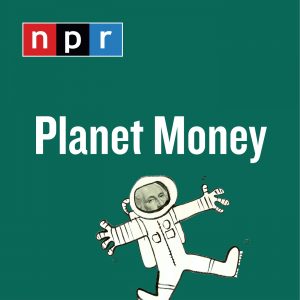
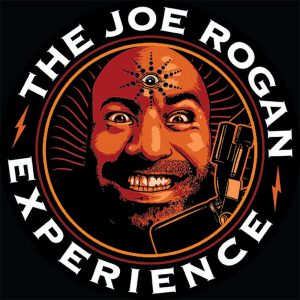
Sara: One of the most popular podcasts out there, The Joe Rogan Experience is known for its lengthy interviews with some of the most intriguing, controversial and insightful experts from a plethora of different fields and categories. While time doesn’t always allow me to keep up with all of the new episodes, one of the recent podcast episodes I really enjoyed and highly recommend is Episode #1474 with Dr. Rhonda Patrick.
Dr. Rhonda Patrick is a Ph.D. in biomedical science and an expert on nutritional health. The interview focuses primarily on COVID-19 and the lifestyle factors that can modulate your immune system and strengthen it, also informing that besides age, a major regulator of immune function is influenced by previous virus exposure. She also dives in-depth into genetic factors, blood type factors, the possibility of cross-immunities between other viruses, compelling conclusions from recent studies, intriguing information surrounding different types of antibodies ranging from monoclonal antibodies and vaccines and its potential negative effects (particularly antibody dependent enhancement), and discusses the efficacy of vitamin C supplements and the big difference between oral vitamin C and intravenous vitamin C. However, the most important takeaway I had is unearthing how critical our vitamin D levels are to our health. Vitamin D is a hormone that impacts 5% of the human genome and is crucial for lung and respiratory functions. Around 70% of the US population has insufficient vitamin D levels, and African Americans in the US are around 28x more deficient in vitamin D than Caucasians. In learning more about the relation between vitamin D and SARS-CoV-2, recent studies observed that the lower the vitamin D levels in a patient, the higher the severity of COVID-19 experienced. A recent study in Indonesia revealed that 98% of the patients that died from COVID-19 were vitamin D deficient, and Dr. Rhonda Patrick explains her hypothesis and the need to test more on the correlation between vitamin D and COVID-19.
Though the episode is pretty science-heavy, Dr. Rhonda makes it easy to digest and understand the information. The episode is around 3 hours, so if you don’t have time to listen to the entire recording, I suggest listening to at least the first hour and then breaking the rest of it up. I hope you enjoy this one as much as I did!
Charlinda: If you aren’t Getting Curious with Jonathan Van Ness then I don’t know what you’ve been up to this summertime. Jonathan Van Ness does more than great haircuts, he is always looking to better himself and curious to learn about topics such as social justice, education, the economy and everything in between.
In one of his most recent podcast episodes called “Are Cicadas the Only Ones Having a Hawt Gurl Summer?”, he speaks with Dr. Jessica Ware about a variety of topics, including periodical cicadas, cockroaches, and dragonflies. Dr. Ware is a curator of Odonata and non-Holometabolous insect orders at the American Museum of Natural History in New York as well as a professor at the Richard Gilder Graduate School. Beyond participating in the Entomological Society of America as their Vice President-Elect, she is also the President of the Worldwide Dragonfly Association.
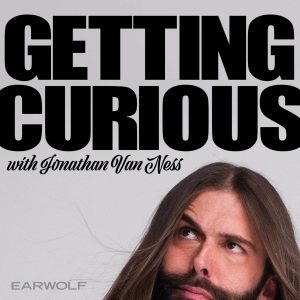
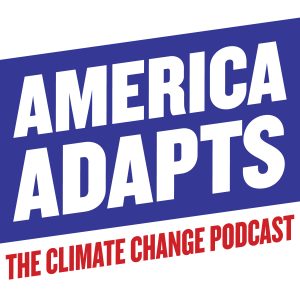
Giselle: My routine of listening to podcasts was a little bit altered by the COVID-19 pandemic. I used to listen to Stay Tuned with Preet on a regular basis – a relatively new podcast about legal topics – on my way to the office, but since we now work remotely, I have been taking some time off from podcasts. When we were assigned to provide recommendations about environmental podcasts, it was the perfect time to find my way back into it.
There’s plenty being said about “adaptation” and about the need to reinvent us for this new reality. That was precisely my inspiration to start listening to America Adapts. I specifically recommend an episode that aired on April 19th about “Adapting to Climate Change during a Pandemic…” On this episode, Shaun Martin of the World Wildlife Fund, provides an interesting view about the climate crisis. Adapting to situations is a matter of survival in many aspects of life and climate change is no different.
Sue: I have to admit, I’m not a great podcast listener. When I’m working, I need to get fully immersed and focused – I can’t listen to one thing while I’m doing something else. However, I did used to love listening to the radio when I was a child, so I thought I’d try a podcast.
I picked The Sustainability Agenda, hosted by Fergal Byrne, which is a weekly podcast exploring today’s biggest sustainability questions. Leading sustainability thinkers offer their views on the biggest sustainability challenges, share the latest thinking, identify what’s working and what needs to change, and think about the future of sustainability. Episode 42, “Sustainability: a new way of doing business” is an interview with George Serafeim, the Jakurski Family Associate Professor of Business Administration at Harvard Business School.
In this interview, Serafeim discusses how sustainability factors can be embedded within the corporate sector. He differentiates between two different forms of sustainability: one that seeks competitive advantage versus one that advocates a new standard of doing business.

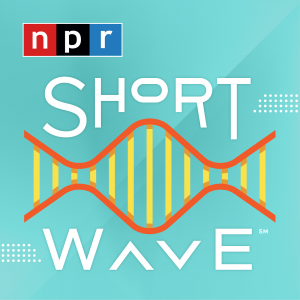
Catie: While coronavirus has limited my hours of podcast listening thanks to a lack of commuting, I’ve been able to keep up with a few of my favorites. One of the top science podcasts I always try to stay up-to-date with is NPR’s Short Wave. Led by host Madeline (Maddie) Sofia and occasionally by reporter Emily Kwong, this podcast is short, succinct, and scientific. It gives me a 15-minute slice of science, perfect for making a cup of coffee, about topics that have always interested me, but that I never have found the time to look into.
The engaging and real ways Sofia and Kwong share what they’ve learned and their interviews with guests on the show keeps me coming back. Whether you want to learn about why rain smells the way it does or how Minneapolis has a plan to tackle racial inequity and the climate crisis, NPR’s Short Wave is the place to start!
Michael: I actually don’t listen to any podcasts entirely dedicated to climate change, but a couple of my favorites have had some episodes and/or often delve into the issues.
Stuff You Should Know is hosted by Clark and Chuck Bryant who have a constant thirst for knowledge and a great chemistry together. It’s one of the longer running podcasts and has been consistently highly rated. Their recent episode about soil actually makes soil interesting and describes how soil is the ‘life blood of Earth itself’.
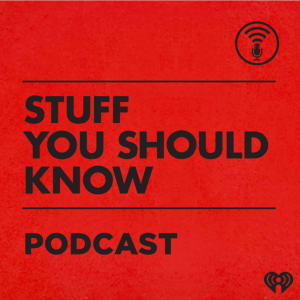
 Food
Food Farmers
Farmers Sustainable Living
Sustainable Living Living Planet
Living Planet News
News